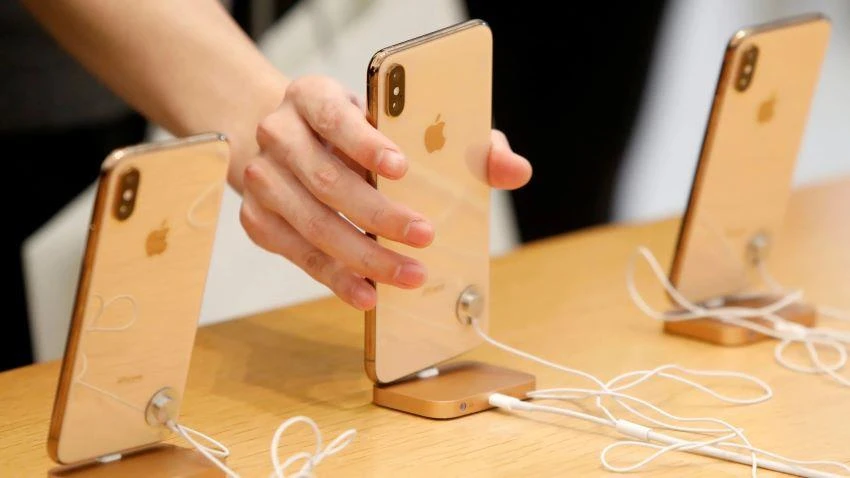
The U.S. will postpone enacting an additional 10% tariff on key Chinese exports including smartphones, laptops and toys until Dec. 15, a move likely intended to minimize the effect on American consumers during the critical Christmas shopping season.
The Office of the U.S. Trade Representative made the announcement on Tuesday. The U.S. was set to impose the next round of sanctions on roughly $300 billion of Chinese products on Sept. 1, affecting virtually all Chinese exports still untouched by the trade war.
In New York, the Dow Industrial Average jumped more than 500 points Tuesday morning on the news, before closing up 372 points. Investors welcomed the postponement of tariffs on smartphones and laptops, pushing Apple's share price up over 5.8% at one point. Nike saw its stock rise more than 3% thanks to shoes also being granted a temporary reprieve from the tariffs. The USTR announcement came as a surprise to the market, which had dropped 389 points on Monday and had opened Tuesday trading on a weaker note.
President Donald Trump indicated to reporters later the day that he had U.S. consumers in mind when making the decision. "We're doing this for Christmas season," he said while leaving a New Jersey property for an event in Pennsylvania.
Roughly 40% of those targeted are consumer goods, and the new tariffs will likely deal a heavy blow both to American consumers and to China-based supply chains. The delay also gives the U.S. and China more room for negotiations.
China's Commerce Ministry said that Vice Premier Liu He spoke with U.S. Trade Representative Robert Lighthizer and U.S. Treasury Secretary Steven Mnuchin on the phone Tuesday. Liu expressed his strong opposition to the new tariffs, and the two sides agreed to have another telephone conversation within the next two weeks.
Game consoles, computer monitors and certain shoes and clothing will also be granted a delay in tariffs. The U.S. Trade Representative also said it removed health- and security-related products from its list of roughly 3,800 items announced in mid-May.
A trade group that represents the U.S. apparel industry welcomed the move to delay the tariffs but also reiterated its hope that trade talks would progress so that the duties would be entirely scrapped.
"While the Trump administration is delaying tariffs on 'certain items of footwear and clothing' for 105 days, and removing other items from the list entirely, it is still persisting with a destructive plan to impose tariffs on consumer goods used by every American and critical inputs used by U.S. manufacturers," said Rick Helfenbein, head of the American Apparel & Footwear Association, in a statement.
"They create costs and uncertainty, forcing companies to delay or scuttle hiring and investment decisions and ultimately hit the U.S. consumer. Rebalancing our trade partnership with China is of critical importance, but taxing U.S. companies, U.S. consumers, and the U.S. economy is not the way to achieve that goal," Helfenbein said.
Analysts say that the odds of a grand bargain between the two nations have shrunk. "China will not change its behavior on intellectual property to U.S. satisfaction, nor can it buy very large quantities of American products before the 2020 election is decided," Derek Scissors of the American Enterprise Institute told Nikkei. "Given that, the U.S. is unlikely to roll back existing tariffs. However, a smaller deal involving some Chinese purchases and no additional American tariffs is possible."




















